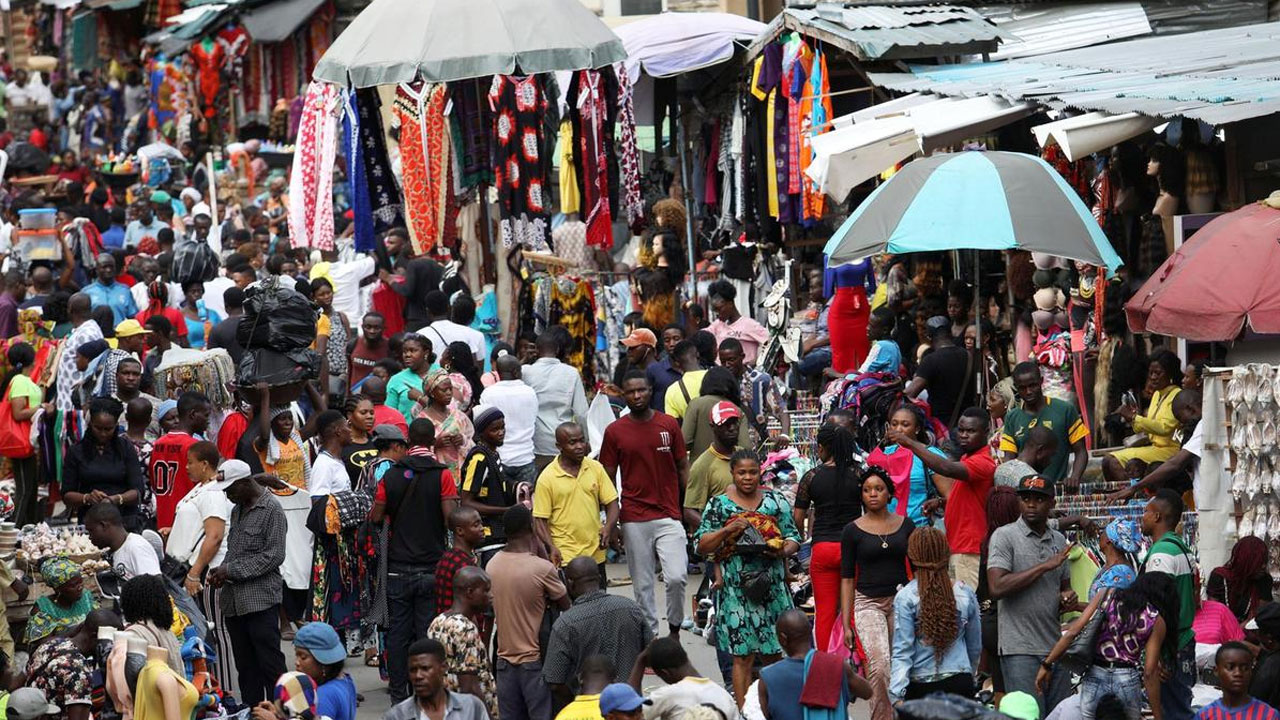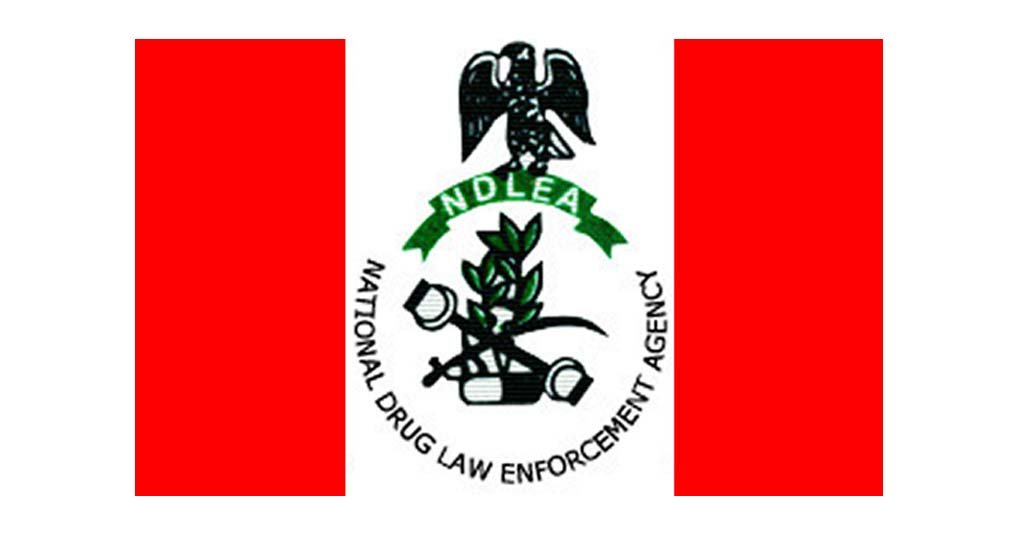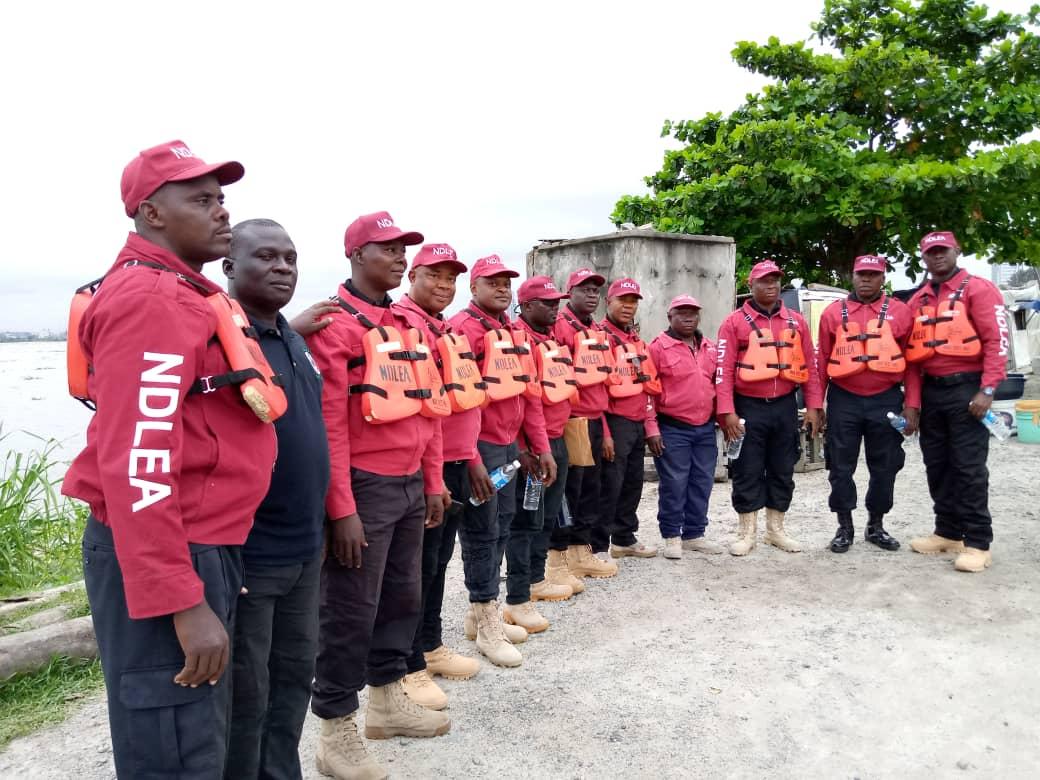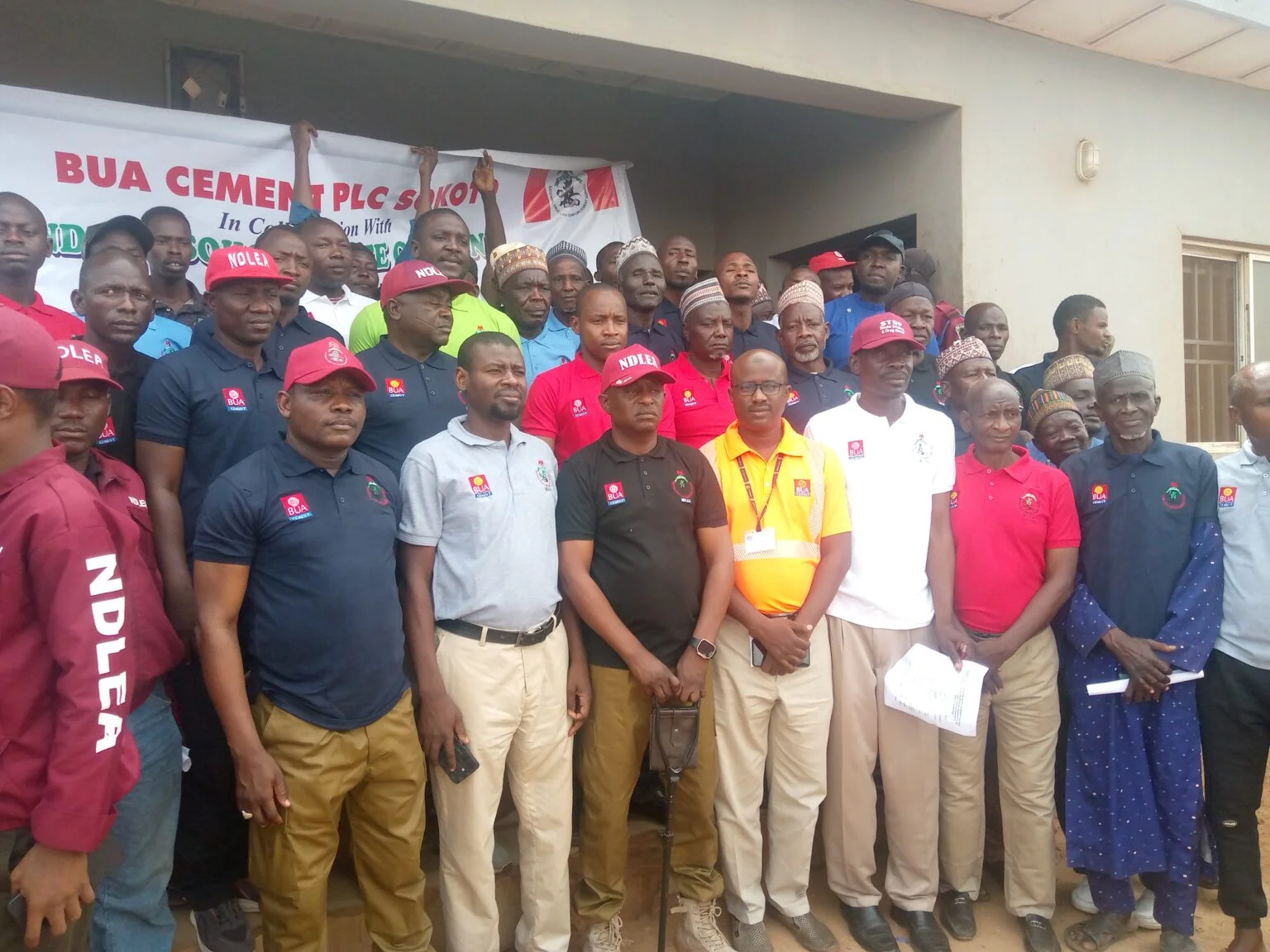Headlines
NBS: Inflation Rate Surges to 20.52%, Highest in 17 Years

The Consumer Price Index (CPI) which measures the rate of change in prices of goods and commodities rose to 20.52 per cent year-on-year in August, compared to 17.01 per cent in the corresponding period in 2021, the National Bureau of Statistics (NBS) disclosed on Thursday.
The CPI had risen to 19.64 per cent in July 2022.
The latest inflation figure was the highest inflation rate the country has recorded in 17 years.
The inflation figures came just as the Director, Corporate Communication Department, Central Bank of Nigeria (CBN), Mr. Osita Nwanisobi, Thursday expressed concern that the attitude of Nigerians towards foreign goods and services was one of the major challenges affecting the nation’s economy.
The statistical agency said the 3.52 per cent rise indicated that the headline inflation rate increased in August 2022 when compared to the same month in the preceding year.
According to the CPI report for August 2022, which was posted on the NBS website, food inflation stood at 23.12 per cent on a year-on-year basis in the period under review, which was 2.82 per cent higher than the 20.30 per cent recorded in August 2021.
However, core inflation, which excludes the prices of volatile agricultural produce stood at 17.20 per cent year on year in August, up by 3.79 per cent when compared to 13.41 per cent recorded in August 2021.
The NBS pointed out that the rise in food inflation was caused by increases in prices of bread and cereals, food product, potatoes, yam, and other tubers, fish, meat, oil, and fat.
Month-on-month, food inflation stood at 1.98 per cent in August, representing 0.07 per cent decline compared to the 2.04 per cent recorded in July.
On the other hand, the core index recorded the highest increases in prices of gas, liquid fuel, solid fuel, passenger transport by road, passenger transport by air, fuel and lubricants for personal transport equipment, cleaning, repair, and hire of clothing.
On a month-on-month basis, core inflation stood at 1.59 per cent in August, down by 0.17 per cent when compared to 1.75 per cent recorded in the preceding month.
Also, year-on-year, the urban inflation rate stood at 20.95 per cent, which was 3.36 per cent higher compared to 17.59 per cent recorded in August 2021.
On a month-on-month basis, urban inflation stood at 1.79 per cent in August, representing a 0.03 per cent decline compared to 1.82 per cent in July.
On the other hand, the rural index year on year stood at 20.12 per cent, representing 3.69 per cent increase over the 16.43 per cent recorded in the preceding year.
Also, month-on-month the rural inflation was 1.75 per cent, down by 0.06 per cent compared to 1.81 per cent in July.
However, at state level, the inflation rate on a year-on-year basis was highest in Ebonyi 25.33 per cent, Rivers 23.70 per cent, Bayelsa 23.01 per cent.
On the other hand, Jigawa 17.30 per cent, Borno 17.56 per cent and Zamfara 18.04 per cent recorded the slowest rise in headline inflation.
Month-on-month, however, the highest increases were recorded in Anambra 2.78 per cent, Ondo 2.53 per cent, Nasarawa 2.40 per cent, while Yobe 0.68 per cent, Borno 0.84 per cent and Zamfara 0.98 per cent recorded the slowest rise in inflation.
Also, year-on-year, food inflation was highest in Kwara 30.80 per cent, Ebonyi 28.06 per cent and Rivers 27.64 per cent, while Jigawa 17.77 per cent, Zamfara 18.79 per cent and Oyo 19.80 per cent recorded the slowest rise.
Month-on-month, however, food inflation was highest in Anambra 3.05 per cent, Ondo 2.92 per cent and Bauchi 2.78 per cent, while Yobe 0.46 per cent, Oyo 0.89 per cent and Delta 0.94 per cent recorded the slowest rise.
However, reacting to the inflation outcome, Chairman, Chartered Institute of Bankers of Nigeria (CIBN), Abuja Branch, Prof. Uche Uwaleke, said the increase in headline inflation above the psychological threshold of 20 per cent did not come as a surprise in view of the rising inflation trend in many economies partly caused by the Russian Ukrainian conflict.
It’s interesting to note that the NBS, in its latest CPI report, he said the NBS also provided a clue as to the major factors driving the inflationary pressure in Nigeria namely supply disruptions and the rising cost of production.
Uwaleke said “In the light of this revelation, what becomes clear is that the recent monetary policy tightening stance of the CBN alone may not address the challenge.
“The government needs to formulate and implement complementary fiscal policies aimed at boosting food supply as well as reducing firm’s cost of production.”
Also commenting on the development, the Chief Executive Officer, Eczellon Capital, Diekola Onaolapo cited domestic constraints.
He said: “The figures should surprise anyone; it is tragic that things are going this way. However, our inflation is often imported, and given the trajectory of the foreign exchange rate over the past few months has been. It is not a good development but not surprising.”
He added: “Considering inflation measures and changes in pricing from period to period, you’ll expect that after a while, it begins to taper off but the year-on-year comparison is going to continue but month-on-month would begin to taper off at some point.”
On his part, the Head, Financial Institutions Ratings at Agusto & Co, Mr. Ayokunle Olubunmi said: “I don’t think the figures are actually surprising given what we’re seeing globally and also with the country, I’m sure nobody is surprised by what we are seeing. Also, the exchange rates played a part because we largely import.”
“For the rest of the year, we think there would actually be an increase. The momentum will actually continue however, there will be a slowdown and the rate of increase is going to reduce. For us, we are projecting that the average inflation for the year would not exceed 19 per cent. The rate increase is going to reduce. It is going to increase at a decelerating rate.”
CBN: Nigerians’ Attitude to Foreign Goods, Impacting Economy Negatively
Meanwhile, Nwanisobi on Thursday said the attitude of Nigerians towards foreign goods and services was one of the major challenges affecting the nation’s economy.
The CBN Director, who noted that in the past 15 years, the country had survived several challenges, said Nigerians need to contribute to the development and stability of the nation’s economy by cutting down on their appetite of foreign goods.
He listed some of the activities in the past that hindered the growth of the nation’s Gross Domestic Product (GDP) to include economic recession, COVID-19 pandemic, oil theft, insecurity, among others.
He berated Nigerians’ appetite for foreign goods which he said leads to pressure in the forex market and naira depreciation.
The CBN director spoke yesterday, during an enlightenment fair organised by the CBN for business operators, banks, farmers, cooperative societies, NYSC members and workers of various establishments, held in Port Harcourt, Rivers State.
Speaking at the programme with the theme: “Promoting Financial Stability and Economic Development,”
Nwanisobi, who was represented by the Deputy Director, Corporate Communication Department, Central Bank of Nigeria (CBN), Mr. Samuel Okogbue, said the Enlightenment Fair would educate the participants on their various business activities that affects the economy.
“CBN is about the economy and the economy is about the people. We are here to interact with you about economy as to be conscious of what you are doing that impacts on the economy.
“The essence of our coming here is not only to tell you what CBN is doing. We also want to appreciate you, to think with you about our economy so that we will be conscious of what we are doing and how your businesses and other activities impact on our economy.
“In the last 15 years we have passed through many problems such as economic recession, COVID-19 which have impacted on the economy. We are battling with insecurity, oil theft and the urge for foreign goods which affects the nation’s Gross Domestic Product, GDP.
“We consume foreign goods, everything we consume are foreign based and all this affects the foreign exchange rates. Our attitude to foreign goods is affecting our economy. This enlightenment fair will educate you on consumer protection, currency operations, payment management system, development finance and eNaira,” he said.
In his remarks, the CBN Port Harcourt branch Controller, Maxwell Okafor, said the fair was aimed at disclosing the activities of CBN to the participants and what is required of them to secure their businesses and operate a free market economy.
Also, the CBN Assistant Director, Consumer Protection Department, Damola Atanda; Chika Ugwueze, CBN Assistant Director, Payment System, and Stanley Oruyeigha, Head Development Finance Department, enlightened participants on issues concerning consumer protection, payment system and development finance.
One of the participants and programme manager, Rivers State Agricultural Development Programme (ADP), Mr. Vitalis Chindah, commended the CBN for their interventions in area of agriculture product in the state and across the nation.
He urged the CBN to do more in encouraging the so many yearnings farmers who need finance to upgrade their business
Headlines
Noble Ladies Champion Women’s Financial Independence at Grand Inauguration in Abuja

Women from diverse backgrounds across Nigeria and beyond gathered at the Art and Culture Auditorium, Abuja, for the inauguration and convention of the Noble Ladies Association. The event, led by the association’s Founder and “visionary and polished Queen Mother,” Mrs. Margaret Chigozie Mkpuma, was a colourful display of feminine elegance, empowerment, and ambition.
The highly anticipated gathering, attended by over 700 members and counting, reflected the association’s mission to help women realise their potential while shifting mindsets away from dependency and over-glamorization of the ‘white collar job.’ According to the group, progress can be better achieved through innovation and creativity. “When a woman is able to earn and blossom on her own she has no reason to look at herself as a second fiddle,” the association stated.
One of the association’s standout initiatives is its women-only investment platform, which currently offers a minimum entry of ₦100,000 with a return of ₦130,000 over 30 days—an interest rate of 30 percent. Some members invest as much as ₦1 million, enjoying the same return rate. Mrs. Mkpuma explained that the scheme focuses on women because “women bear the greater brunt of poverty” and the platform seeks “to offer equity in the absence of economic equality.”
Education is also central to the Noble Ladies’ mission, regardless of age. Their mantra, “start again from where you stopped,” encourages women to return to school or upgrade their skills at any stage in life. The association believes that financial stability is vital in protecting women from cultural practices that dispossess widows of their late husbands’ assets, while also enabling them to raise morally and socially grounded families.
Founded on the vision of enhancing women’s skills and achieving financial stability, the association rests on a value system that discourages pity and promotes purpose. “You have a purpose and you build on that purpose to achieve great potentials and emancipation,” Mrs. Mkpuma said.
A criminologist by training and entrepreneur by practice, she cautions against idleness while waiting for formal employment. “There are billions in the informal and non-formal sectors waiting to be made,” she said, rejecting the “new normal of begging” and urging people to “be more introspective to find their purpose in life and hold on to it.”
Mrs. Mkpuma’s management style keeps members actively engaged, focusing on vocational skills and training to prepare them for competitive markets. She is exploring “innovative integration of uncommon technologies” and is already in talks with international franchises to invest in Nigeria, with Noble Ladies as first beneficiaries.
The association’s core values include mutual respect, innovation, forward-thinking, equal opportunity, and financial emancipation. With plans underway to establish a secretariat in the heart of Abuja, the group aims to expand its impact.
The event drew high-profile guests, including former Inspector General of Police, Mike Okiro, and a host of VIPs, marking a significant milestone in the association’s drive for women’s empowerment.
Headlines
NEPZA, FCT agree to create world-class FTZ environment

The Nigeria Export Processing Zones Authority (NEPZA) has stepped in to resolve the dispute between the Federal Capital Territory Administration and the Abuja Technology Village (ATV), a licensed Free Trade Zone, over the potential revocation of the zone’s land title.
Dr. Olufemi Ogunyemi, the Managing Director of NEPZA, urged ATV operators and investors to withdraw the lawsuit filed against the FCT administration immediately to facilitate a roundtable negotiation.
Dr. Ogunyemi delivered the charge during a courtesy visit to the Minister of the Federal Capital Territory, Barrister Nyesom Wike, on Thursday in Abuja.
You will recall that the ATV operators responded to the revocation notice issued by the FCT administration with a lawsuit.
Dr. Ogunyemi stated that the continued support for the growth of the Free Trade Zones Scheme would benefit the nation’s economy and the FCT’s development, emphasizing that the FCT administration recognized the scheme’s potential to accelerate industrialisation.
Dr. Ogunyemi, also the Chief Executive Officer of NEPZA, expressed his delight at the steps taken by the FCT minister to expand the economic frontier of the FCT through the proposed Abuja City Walk (ACW) project.
Dr. Ogunyemi further explained that the Authority was preparing to assess all the 63 licensed Free Trade Zones across the country with the view to vetting their functionality and contributions to the nation’s Foreign Direct Investment and export drives.
“I have come to discuss with His Excellency, the Minister of the Federal Capital Territory on the importance of supporting the ATV to succeed while also promoting the development of the Abuja City Walk project. We must work together to achieve this for the good of our nation,” he said.
On his part, the FCT Minister reiterated his unflinching determination to work towards President Bola Ahmed Tinubu’s Renewed Hope Agenda by bringing FDI to the FCT.
“We must fulfil Mr. President’s promises regarding industrialization, trade, and investment. In this context, the FCT will collaborate with NEPZA to review the future of ATV, a zone that was sponsored and supported by the FCT administration,” Wike said.
Barrister Wike also said that efforts were underway to fast-track the industrialisation process of the territory with the construction of the Abuja City Walk.
The minister further said the Abuja City Walk project was planned to cover over 200 hectares in the Abuja Technology Village corridor along Airport Road.
According to him, the business ecosystem aimed to create a lively, mixed-use urban center with residential, commercial, retail, hospitality, medical, and institutional facilities.
He added that the ACW would turn out to be a high-definition and world-class project that would give this administration’s Renewed Hope Agenda true meaning in the North-Central Region of the country.
Barrister Wike also indicated his continued pursuit of land and property owners who failed to fulfil their obligations to the FCT in his determination to develop the territory.
Headlines
Benue IDPs block highway, demand return to ancestral homes

Vehicular movement along the Yelwata axis of the Benue–Nasarawa highway was brought to a standstill on Wednesday as Internally Displaced Persons, IDPs, staged a protest, demanding immediate return to their ancestral homes.
The protesters, believed to be victims of persistent attacks by suspected herdsmen, blocked both lanes of the busy highway for several hours, chanting “We want to go back home”.
The protest caused disruption, leaving hundreds of motorists and passengers stranded.
Eyewitnesses said the displaced persons, many of whom have spent years in overcrowded IDP camps, are expressing deep frustration over the government’s delay in restoring security to their communities.
“We have suffered enough. We want to return to our homes and farms,” one of the protesters told reporters at the scene.
Security personnel were reportedly deployed to monitor the situation and prevent any escalation, though tensions remained high as of press time.
Efforts to reach the Benue State Emergency Management Agency, SEMA, and other relevant authorities for comment were unsuccessful.
-

 Headlines4 years ago
Headlines4 years agoFacebook, Instagram Temporarily Allow Posts on Ukraine War Calling for Violence Against Invading Russians or Putin’s Death
-

 Headlines4 years ago
Headlines4 years agoNigeria, Other West African Countries Facing Worst Food Crisis in 10 Years, Aid Groups Say
-

 Foreign4 years ago
Foreign4 years agoNew York Consulate installs machines for 10-year passport
-

 News1 year ago
News1 year agoZero Trust Architecture in a Remote World: Securing the New Normal
-

 Entertainment3 years ago
Entertainment3 years agoPhyna emerges winner of Big Brother Naija Season 7
-

 Headlines1 year ago
Headlines1 year agoNigeria Customs modernisation project to check extortion of traders
-

 Entertainment2 years ago
Entertainment2 years agoMovie download platform, Netnaija, announces closure
-

 Economy2 years ago
Economy2 years agoWe generated N30.2 bn revenue in three months – Kano NCS Comptroller














